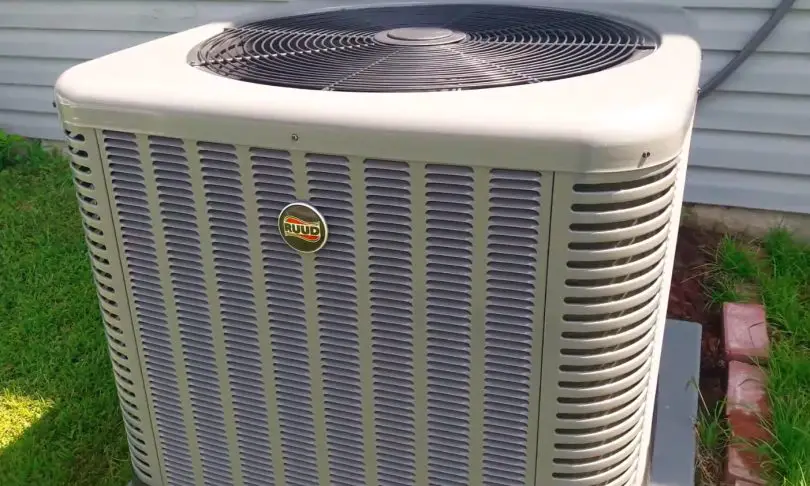The interchangeability of Rheem and Ruud often leads to confusion for consumers seeking reliable heating, ventilation, and air conditioning (HVAC) solutions. As these brands share a parent company, Rheem Manufacturing Company, it’s essential to understand the nuances that set them apart. In this comprehensive guide, we’ll explore the histories, strengths, and key differences between Rheem and Ruud, assisting you in making an informed decision for your HVAC needs.
Parallel Histories: Rheem Vs Ruud
Rheem and Ruud, while distinct brand names, both fall under the umbrella of the Rheem Manufacturing Company. This corporation champions growth, dependability, and efficiency across its brands. Understanding the connection between Rheem and Ruud requires delving into their histories and the strategic acquisition that shaped their synergy.
Rheem’s HVAC Journey: Pioneering Excellence
Founded in California in 1925, Rheem Manufacturing Company initially focused on steel drums before expanding into diverse product lines, including HVAC components. In 1960, Rheem strategically acquired Ruud, utilizing its Kalamazoo facility for the consolidated production of heating and cooling products. This move proved financially beneficial for Rheem.
Forbes recognized Rheem as the best air conditioning system brand in 2022, attributing this acknowledgment to outstanding customer
service and product evaluation. With a century-long history, Rheem has consistently delivered high-quality climate control systems, earning an A+ rating from the Better Business Bureau. Rheem’s commitment to innovation is evident in features like the EcoNet mobile monitoring application and Copeland variable-speed blowers, contributing to its reputation for excellence.
Ruud’s Legacy: Innovation and Quality
Edwin Ruud, a Norwegian mechanical designer, laid the foundation for Ruud’s HVAC legacy with his invention of the centrally controlled water heater. This innovation in 1950 marked the beginning of Ruud’s journey into heating and cooling equipment. Over the years, Ruud has evolved into one of North America’s premier producers of high-quality heating, cooling, and water heating systems.
Ruud distinguishes itself with a commitment to expansion, enhancement, and technological advancements. Offering a range of products for both commercial and residential applications, Ruud stands as a leader in the industry. Rigorous testing in government and non-government labs ensures that Ruud’s products adhere to the highest quality standards.
Comparative Analysis: Rheem vs. Ruud HVAC Systems
Quality:
Both Rheem and Ruud have established reputations for delivering quality HVAC systems. A key factor in assessing their efficiency is the Seasonal Energy Efficiency Ratio (SEER) rating. Higher SEER ratings indicate greater energy efficiency and environmental friendliness. Ruud products typically boast SEER ratings between 16 and 19.5, showcasing effectiveness. Rheem, too, offers similar SEER ranges, with many units featuring a dual-loop system for improved efficiency.
Assortment:
Both brands provide a variety of models under their respective series – Rheem’s Prestige and Ruud’s Ultra. The product offerings cater to different applications, ensuring compatibility and energy-efficient operation.
Prices:
The cost of Rheem and Ruud units varies based on factors such as model, capacity, and installation requirements. While both brands may have a higher initial cost, it’s crucial to consider the long-term benefits of energy efficiency and performance. A free assessment can help determine the total cost, ensuring transparency in the investment.
Pros and Cons: Rheem vs. Ruud
Rheem:
– Pros:
– Energy Star rating
– Recognized for excellence
– Steel construction
– Cons:
– Limited selection
– Higher price
– Limited warranty
– Limited SEER options
Ruud:
– Pros:
– Well-known in commercial and residential sectors
– Wide range of SEER options
– Energy Star certified
– Cons:
– Higher price
– Limited selection
– Larger units
– Limited SEER options
Choosing the Right Fit: Rheem vs. Ruud
When deciding between Rheem and Ruud, prioritize efficiency, quality, and compatibility with your HVAC requirements. Avoid compromising quality for a lower upfront cost, as investing in a reliable and energy-efficient unit pays off in the long run. Both brands offer robust solutions, ensuring a comfortable and efficient climate control system for your space.
Disclosure: We may get commissions for purchases made through links in this post.








